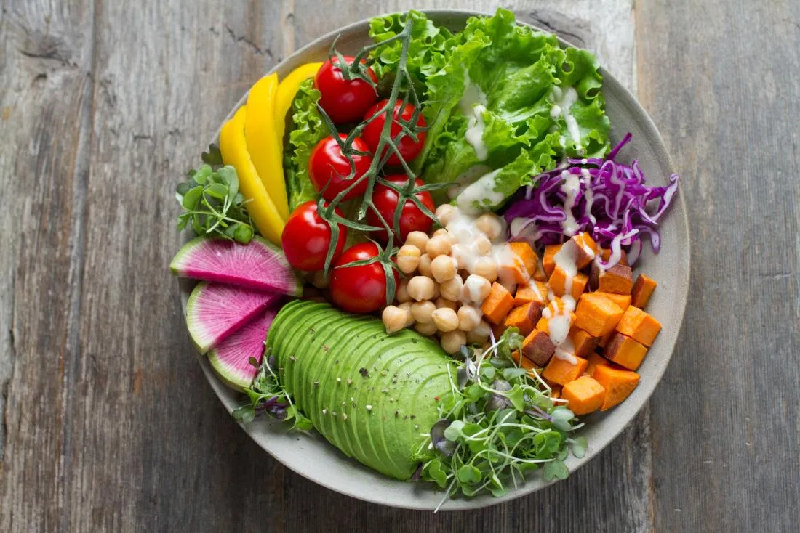Traditionally, there are 4 main diets that account for the vast majority of people on earth. These are carnivorous, vegetarian, pescatarian and vegan. The basis of a carnivorous, pescatarian and vegetarian diet is similar, the only difference being that as well as vegetables and dairy products carnivores also eat meat and fish while pescatarians just eat fish – it isn’t the case that carnivores ONLY eat meat, therefore, these 3 diets naturally are well-balanced with a variety of different proteins, carbohydrates and vitamins available.
The vegan (or plant-based) diet, however, is very different in that it doesn’t have any natural foods high in protein such as eggs, fish and meat that normally give us this in high doses meaning that unless we want to spend our entire day eating kilo’s of vegetable in the same way that some animals do we need a manufactured alternative. Tofu (from the soybean) and Quorn are two of the most popular options alongside things like Lentils and Chickpeas.
Tofu
There is no doubt that Tofu certainly has some great benefits when compared to meat, they lack many of the unhealthy fats and cholesterols that something like red meat contains. It has actually been found that Tofu can reduce the levels of LDL Cholesterol by between 3% and 5% as well as being rich in omega-3 and having 14% of your recommended daily intake of Magnesium. There is also ‘calcium-enriched’ Tofu now available for people who may have a deficiency. That said, there are also possible downsides to Tofu as well that are not as well publicised in what appears to be a wonder food. Many people are allergic to Soy and therefore by eating Tofu will have allergy flare ups meaning antihistamines need to be taken. In addition to this, there is a debate as to whether GMO (Genetically Modified foods) are healthy or hazardous, there appears to be no conclusive evidence of this at this point. People who have had breast cancer or have thyroid problems should also avoid Tofu.
Supplements
Aside from the protein element, which is always the main talking point, the vegan diet does naturally encourage you to eat more grains, fruit and vegetables meaning that your overall diet will be much richer in vitamins and minerals. However, many of the vitamins you require are present in much higher quantities in meats and fish meaning that you need to eat a lot more to be able to get the amount you need and supplements like EPA fish oil might become essential – for this reason many people on a vegan diet need to take high levels of supplements and vegan probiotics to keep their body healthy. The only problem with taking supplements in tablet form rather than through your diet is that your body doesn’t take them in at the same level as they aren’t digested for as long. For this reason, many vegans will be lacking in many nutrients, particularly iron and will, therefore, have a very pale, gaunt complexion.
Athletes
Naturally as the vegan trend has become more popular, athletes have also begun to adopt the trait. Some of these athletes have been able to offer their best performances while on the diet, which makes them the focus of publicity. However when comparing celebrity lifestyles to the everyday person, it’s more than likely that athletes will have professional nutritionists aiding them to optimise their performance while on the diet. So taking on the vegan diet needs to be suitable for your lifestyle and not compared to an athlete.

